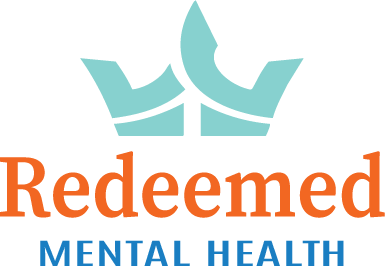 Mental health, often overshadowed by physical well-being, plays a pivotal role in our overall quality of life. It influences how we think, feel, and act, making it essential in all stages of life. From childhood and adolescence through adulthood, understanding and addressing mental health concerns is crucial. This guide aims to shed light on the various treatments and services available, helping individuals and families navigate the often complex world of mental health care.
Mental health, often overshadowed by physical well-being, plays a pivotal role in our overall quality of life. It influences how we think, feel, and act, making it essential in all stages of life. From childhood and adolescence through adulthood, understanding and addressing mental health concerns is crucial. This guide aims to shed light on the various treatments and services available, helping individuals and families navigate the often complex world of mental health care.
In today’s fast-paced world, where stressors abound, it’s more important than ever to recognize the signs of mental health disorders and know where to turn for help. With a plethora of treatments available, from intensive outpatient programs to individual therapy, there’s hope for everyone.
Understanding Mental Health
Mental health refers to our cognitive, emotional, and social well-being. It’s not just the absence of mental illness but the presence of positive attributes, such as the ability to cope with stress, work productively, and make sound decisions. Unfortunately, misconceptions about mental health persist, leading to stigma and preventing many from seeking the help they need.
Types of Mental Health Disorders
- Depression: More than just a bout of the blues, depression is a persistent feeling of sadness that interferes with daily life. It affects how one feels, thinks, and handles daily activities.
- Psychosis: Characterized by a disconnection from reality, psychosis can manifest as hallucinations or delusions, often requiring specialized treatment.
- Anxiety: While occasional anxiety is a normal part of life, chronic anxiety disorders can be debilitating, causing excessive fear or worry.
- Personality Disorders: These are deeply ingrained patterns of behavior that differ significantly from the norm, affecting interpersonal relations and daily functioning.
- Trauma: Traumatic events can lead to conditions like PTSD, where individuals relive the traumatic event and experience heightened stress levels.
Treatment Options
- Partial Hospitalization Program (PHP):
- What is PHP?: PHP is a structured mental health treatment program designed for individuals experiencing severe mental health symptoms. It offers a middle ground between full hospitalization and outpatient care.
- Benefits and who it’s for: PHP provides intensive care, allowing patients to return home at night. It’s ideal for those who require more support than traditional outpatient care but don’t need 24/7 hospitalization.
- Intensive Outpatient Treatment (IOP):
- Understanding IOP: IOP focuses on group therapy, offering a more intensive treatment approach than standard outpatient care.
- The role of group therapy: Group therapy offers a supportive environment where patients can share experiences and learn from others.
- Individual Therapy:
- The importance of personalized treatment: Every individual’s journey with mental health is unique. Personalized therapy addresses specific needs, ensuring more effective treatment.
- When is individual therapy recommended?: It’s ideal for those in PHP or IOP programs or those who’ve completed these programs.
Choosing the Right Treatment
 Selecting the right treatment is paramount. Factors to consider include the severity of symptoms, personal preferences, and the presence of co-existing health conditions. Always consult with a mental health professional to guide this decision.
Selecting the right treatment is paramount. Factors to consider include the severity of symptoms, personal preferences, and the presence of co-existing health conditions. Always consult with a mental health professional to guide this decision.
Dr. Andrea Wagner: A Beacon of Hope in Mental Health
Dr. Andrea Wagner’s dedication to mental health care is evident in her extensive experience and patient testimonials. With a background in Clinical Forensic Psychology and roles in diverse settings, from the U.S. Army to the California Department of Corrections, Dr. Wagner brings a wealth of knowledge to her practice. Her patient-centric approach ensures that every individual receives the care they deserve.
Conclusion
Mental health is a journey, not a destination. With the right support and treatment, individuals can lead fulfilling lives, overcoming challenges and embracing well-being. It’s essential to keep the conversation about mental health open, destigmatizing it and ensuring that everyone has access to the care they need.
Frequently Asked Questions
Mental health refers to our cognitive, emotional, and social well-being. It’s about how we think, feel, and act in daily life, and it plays a crucial role in our overall quality of life.
Millions of people worldwide are affected by mental health issues, with anxiety and depression being among the most common. These conditions can impact daily functioning and overall well-being.
Accessing mental health services often starts with consulting a primary care physician or mental health professional. They can provide referrals to specialized treatments or programs tailored to individual needs.



























